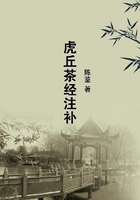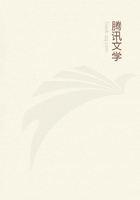CIDE Hamete Benengeli, the Arab and Manchegan author, relates in this most grave, high-sounding, minute, delightful, and original history that after the discussion between the famous Don Quixote of La Mancha and his squire Sancho Panza which is set down at the end of chapter twenty-one, Don Quixote raised his eyes and saw coming along the road he was following some dozen men on foot strung together by the neck, like beads, on a great iron chain, and all with manacles on their hands. With them there came also two men on horseback and two on foot; those on horseback with wheel-lock muskets, those on foot with javelins and swords, and as soon as Sancho saw them he said:
"That is a chain of galley slaves, on the way to the galleys by force of the king's orders."
"How by force?" asked Don Quixote; "is it possible that the king uses force against anyone?"
"I do not say that," answered Sancho, "but that these are people condemned for their crimes to serve by force in the king's galleys."
"In fact," replied Don Quixote, "however it may be, these people are going where they are taking them by force, and not of their own will."
"Just so," said Sancho.
"Then if so," said Don Quixote, "here is a case for the exercise of my office, to put down force and to succour and help the wretched."
"Recollect, your worship," said Sancho, "Justice, which is the king himself, is not using force or doing wrong to such persons, but punishing them for their crimes."
The chain of galley slaves had by this time come up, and Don Quixote in very courteous language asked those who were in custody of it to be good enough to tell him the reason or reasons for which they were conducting these people in this manner. One of the guards on horseback answered that they were galley slaves belonging to his majesty, that they were going to the galleys, and that was all that was to be said and all he had any business to know.
"Nevertheless," replied Don Quixote, "I should like to know from each of them separately the reason of his misfortune;" to this he added more to the same effect to induce them to tell him what he wanted so civilly that the other mounted guard said to him:
"Though we have here the register and certificate of the sentence of every one of these wretches, this is no time to take them out or read them; come and ask themselves; they can tell if they choose, and they will, for these fellows take a pleasure in doing and talking about rascalities."
With this permission, which Don Quixote would have taken even had they not granted it, he approached the chain and asked the first for what offences he was now in such a sorry case.
He made answer that it was for being a lover.
"For that only?" replied Don Quixote; "why, if for being lovers they send people to the galleys I might have been rowing in them long ago."
"The love is not the sort your worship is thinking of," said the galley slave; "mine was that I loved a washerwoman's basket of clean linen so well, and held it so close in my embrace, that if the arm of the law had not forced it from me, I should never have let it go of my own will to this moment; I was caught in the act, there was no occasion for torture, the case was settled, they treated me to a hundred lashes on the back, and three years of gurapas besides, and that was the end of it."
"What are gurapas?" asked Don Quixote.
"Gurapas are galleys," answered the galley slave, who was a young man of about four-and-twenty, and said he was a native of Piedrahita.
Don Quixote asked the same question of the second, who made no reply, so downcast and melancholy was he; but the first answered for him, and said, "He, sir, goes as a canary, I mean as a musician and a singer."
"What!" said Don Quixote, "for being musicians and singers are people sent to the galleys too?"
"Yes, sir," answered the galley slave, "for there is nothing worse than singing under suffering."
"On the contrary, I have heard say," said Don Quixote, "that he who sings scares away his woes."
"Here it is the reverse," said the galley slave; "for he who sings once weeps all his life."
"I do not understand it," said Don Quixote; but one of the guards said to him, "Sir, to sing under suffering means with the non sancta fraternity to confess under torture; they put this sinner to the torture and he confessed his crime, which was being a cuatrero, that is a cattle-stealer, and on his confession they sentenced him to six years in the galleys, besides two bundred lashes that he has already had on the back; and he is always dejected and downcast because the other thieves that were left behind and that march here ill-treat, and snub, and jeer, and despise him for confessing and not having spirit enough to say nay; for, say they, 'nay' has no more letters in it than 'yea,' and a culprit is well off when life or death with him depends on his own tongue and not on that of witnesses or evidence; and to my thinking they are not very far out."
"And I think so too," answered Don Quixote; then passing on to the third he asked him what he had asked the others, and the man answered very readily and unconcernedly, "I am going for five years to their ladyships the gurapas for the want of ten ducats."
"I will give twenty with pleasure to get you out of that trouble," said Don Quixote.
"That," said the galley slave, "is like a man having money at sea when he is dying of hunger and has no way of buying what he wants; I say so because if at the right time I had had those twenty ducats that your worship now offers me, I would have greased the notary's pen and freshened up the attorney's wit with them, so that to-day I should be in the middle of the plaza of the Zocodover at Toledo, and not on this road coupled like a greyhound. But God is great; patience- there, that's enough of it."















